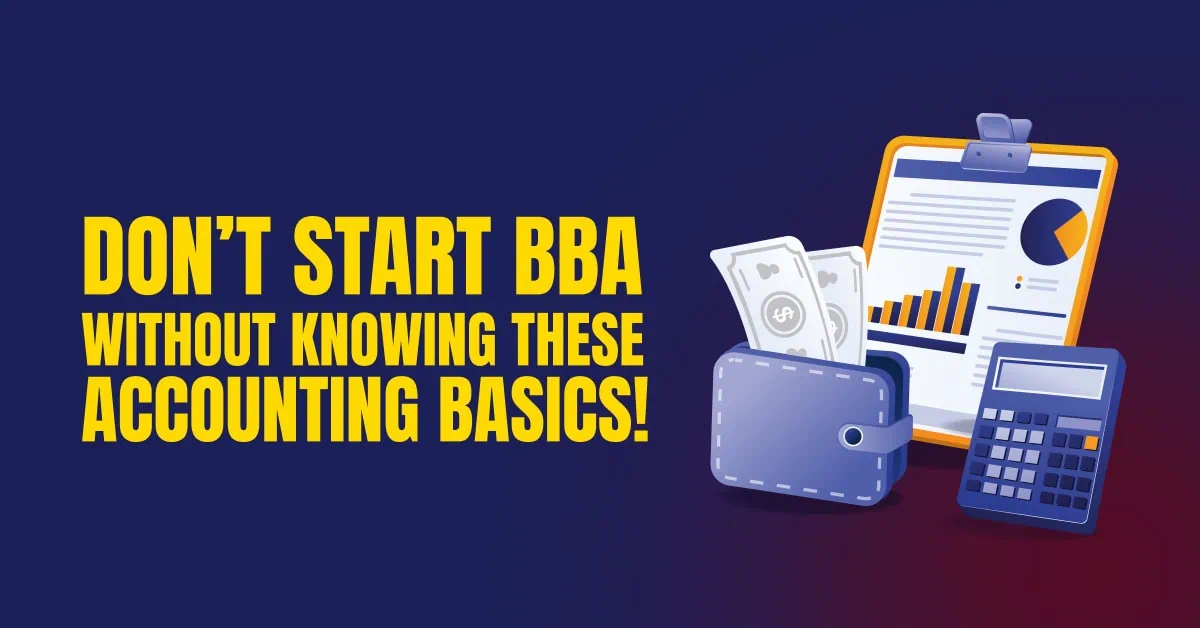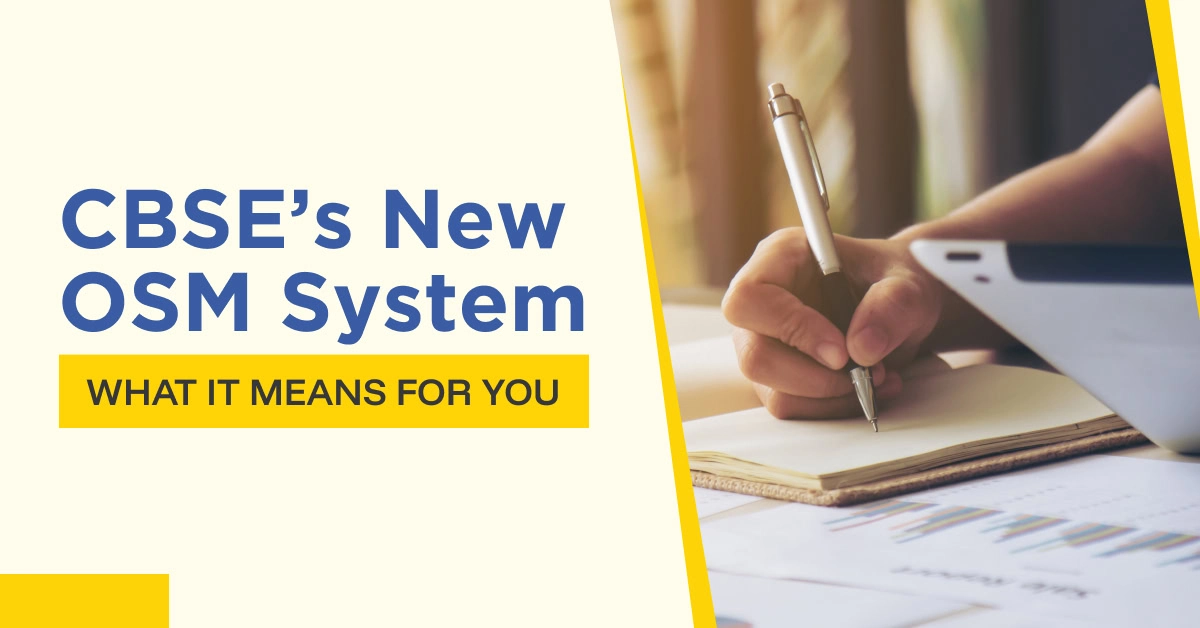If you’re thinking about a BBA in Accountancy, here’s a secret: learning a few basic accounting terms now can give you a serious head start. Accounting is all about tracking and sharing a business’s financial story, but for beginners, it can feel like a foreign language. Words like assets, liabilities, equity, and revenue can leave you scratching your head.
But don’t worry, because once you grasp the key terms, such as assets, liabilities, revenue, expenses, equity, debit, and credits, that same fog lifts. Lectures become clearer, assignments get easier, and you’ll feel way more confident tackling real-world scenarios. So don’t wait for getting a grip on these beginner accounting terms, because now means less confusion later and a smoother ride through your degree. Stay till the end to learn more about these.
Take your first step toward a career in finance. Apply now to Inspiria’s BBA in Accountancy program
Why You Should Learn Accounting Terms Before Starting Your BBA?
Starting your BBA can feel overwhelming, especially when professors begin using terms like “trial balance” or “liability” in the first week of classes. Getting familiar with accounting terms for beginners gives you confidence inside and outside the classroom. You’ll be able to follow lectures from Day 1, which makes everything, from taking notes to asking questions, a lot easier. It also cuts down your stress during exams and assignments because you won’t be trying to learn the basics under pressure. Plus, when it’s time for internships, training, or group projects, you’ll be able to contribute more confidently and clearly. Understanding these terms early on makes your whole college experience smoother and more enjoyable.
Be prepared before you even enter class. Explore our BBA curriculum now.
50 Common Accounting Terms for Beginners (with Simple Definitions & Examples)
| Term | What it means | Example |
| Asset | Anything valuable owned by the business | Office, furniture, cash |
| Liability | The money the business owes | Bank Loan |
| Capital | Owner’s investment in the business | ₹1,00,000 capital investment |
| Revenue | Income from sales and services | ₹20000 from product sales |
| Expense | Cost incurred in running the business | Electricity Bill |
| Profit | When revenue exceeds expense | ₹50,000 revenue, ₹30,000 expense = ₹20,000 profit |
| Loss | When expense exceeds revenue | Revenue ₹30,000, expenses ₹40,000 = ₹10,000 loss |
| Drawings | Money or goods taken by the owner for personal use | ₹5,000 cash withdrawn |
| Purchase | Buying goods for resale or use in business | Buying stock for a retail shop |
| Sales | Selling goods or services | Selling mobile phones |
| Journal | The initial book where transactions are recorded chronologically | Daily sales entry |
| Ledger | The final book that contains categorised accounts | Ledger for rent, sales, and salary |
| Trial Balance | A statement to check the accuracy of debit and credit entries | Total debits = total credits |
| Balance Sheet | Statement showing financial position on a specific date | End-of-year financial snapshot |
| Income Statement | Shows income and expenses to determine profit/loss | P&L account for the year |
| Cash Flow | Tracks inflow and outflow of cash | ₹1,00,000 received, ₹70,000 paid |
| Accounts Payable | The money a business owes to suppliers | ₹15,000 due for inventory |
| Accounts Receivable | Money owed to the business by customers | ₹10,000 pending payment |
| Debit | Left side of an account; increases assets/expenses | Rent paid is a debit |
| Credit | Right side of an account; increases liabilities/income | Sales is a credit |
| Goods | Items a business deals in | Shoes in a shoe store |
| Stock (Inventory) | Goods held for resale or production | 100 T-shirts in the warehouse |
| Depreciation | Decrease in asset value over time | Machines value yearly |
| Prepaid Expense | Payment made in advance for future services | 1-year insurance premium paid upfront |
| Outstanding Expense | Expense incurred but not yet paid | Salary due at month-end |
| Accrual | Recording income/expense when it occurs, not when cash is exchanged | Rent recorded before payment |
| Contingent Liability | Potential liability depending on future events | Court case liability |
| Capital Expenditure | Long-term investment in assets | Buying land or machinery |
| Revenue Expenditure | Regular business expense | Buying office supplies |
| Petty Cash | Small cash kept for minor day-to-day expenses | Paying courier charges |
| Voucher | Proof of Transaction | Receipt or invoice |
| Invoice | A bill issued for goods or services | Customer bill |
| Receipt | Written confirmation of payment received | Payment receipt |
| Bank Reconciliation | Matching the bank statement with the company records | Monthly bank account checking |
| Fiscal Year | A 12-month accounting period | April–March in India |
| Audit | Independent examination of financial records | External CA audit |
| Budget | Financial plan for future income and expenses | Annual college budget |
| Fixed Asset | Long-term tangible property | Land, machinery |
| Current Asset | Assets easily converted to cash within 1 year | Inventory, receivables |
| Current Liability | Obligations due within 1 year | Creditors, short-term loans |
| Tally | Popular accounting software used to record transactions | Used in practical accounting labs |
| GST | Goods & Services Tax applicable on sales/purchases | 18% GST on electronics |
| Networth | Total assets minus liabilities | Assets ₹10L – Liabilities ₹4L = ₹6L Net Worth |
| Ledger Posting | Transferring entries from the journal to the ledger | Sales entry moved to Sales Ledger |
| Trial Balance Error | Mistake in debit/credit recording | Debits ≠ Credits |
| General Ledger | Master record of all financial transactions | All business transactions are posted |
| Charts of Accounts | List of all account titles and numbers | 101 – Cash, 201 – Sales |
| Amortization | Gradual expense of intangible assets | Spreading out the patent cost |
| Double Entry System | Accounting method with debit & credit for every transaction | Buying furniture: Debit asset, Credit cash |
| Retained Earnings | Profits are kept in the business after paying expenses and dividends | ₹1 lakh retained profit |
How These Accounting Terms Help You in Your First-Year BBA Subjects?
Your first year in a BBA program throws a lot at you, but having a handle on basic accounting terms can make the transition so much smoother. From Financial Accounting to Principles of Management and Cost Accounting, these subjects rely heavily on understanding terms like assets, liabilities, journal entries, and ledgers.
When you’re already familiar with this language, lectures become clearer, assignments feel less overwhelming, and class participation gets easier. It also helps when working with practical tools like Tally or Excel, where accuracy is crucial. Most importantly, knowing these basics early on can save you hours of stress during exams and give you the confidence to stay ahead throughout the semester.
Don’t wait to catch up—be ahead of your batch from day one
Real-World Use of Accounting Terms in Auditing and Taxation Careers
The accounting terms you learn as a beginner aren’t just for passing exams, they become tools you’ll use every day in your career. Whether you’re preparing balance sheets, profit & loss statements, tax returns, or audit reports, a strong grasp of the basics is essential. These accounting terms for beginners form the foundation of every career in accounting, taxation, and auditing.
If you plan to work at a CA firm, intern under a tax consultant, or even prepare for exams like CMA, this early knowledge gives you a major advantage. Students who master these terms from the start are more confident in interviews and far better prepared to handle real finance roles with accuracy and professionalism.

How Inspiria Helps You Master Accounting from Day One?
At Inspiria, accounting terms for beginners aren’t just memorized; they are used in real business situations. Our BBA Accountancy program is crafted to align with evolving industry needs, offering hands-on experience with essential tools like Tally, MS Excel, and GST software.
Students engage in live projects and business simulations that mirror real-world financial environments, while internships with reputed finance and accounting firms provide invaluable industry exposure. Through our InSkills Program, learners develop critical professional skills that give them an edge in today’s job market. With faculty comprising experienced CAs and industry experts, students receive practical insights from day one.
Conclusion:-
Mastering accounting terms for beginners will not only help you in college but also set the right track for your future in finance. These terms are used daily by professionals to make critical decisions, manage financial records, and communicate clearly within organizations. The earlier you start learning them, the more confident and prepared you’ll feel as you navigate your BBA journey. Whether it’s understanding your first lecture, contributing to a group project, or acing an internship interview, knowing the basics gives you a real advantage. Don’t wait to catch up, start now and step into business school ready.
FAQs:-
ANS:- Some key accounting terms for beginners include asset, liability, capital, revenue, expense, journal, ledger, debit, and credit. These terms form the foundation of financial accounting and are commonly used in business and academic settings.
ANS:- Understanding basic accounting terms for beginners helps you follow lectures more easily, complete assignments with confidence, and perform better during internships or practical sessions in your BBA course.
ANS:- Not if you start with the basics! Learning simple accounting terms for beginners before or during your BBA course makes the subject much easier to grasp. With the right guidance, anyone can understand accounting.
ANS:- A BBA in Accountancy, Taxation & Auditing is a professional course you can pursue right after 12th. It covers all core accounting terms, tax systems, and auditing practices. Inspiria Knowledge Campus offers one of the best programs in this field.
ANS:- Yes! These accounting terms for beginners are used daily in careers like auditing, tax consulting, banking, financial analysis, and corporate finance. Understanding them gives you an edge during internships and job interviews.
ANS:- No. Even if you’re not from a commerce background, you can learn accounting terms as a beginner. Many BBA programs, like the one at Inspiria, start from the basics and build up gradually with practical examples.
ANS:- Students commonly use software like Tally, Microsoft Excel, and GST return filing tools to apply accounting knowledge. Inspiria includes practical training in all these tools as part of its BBA curriculum.








